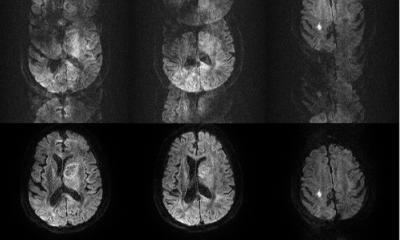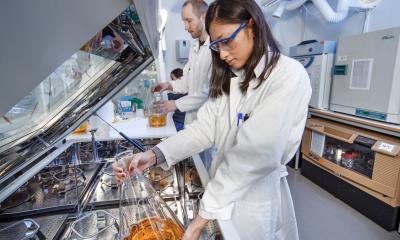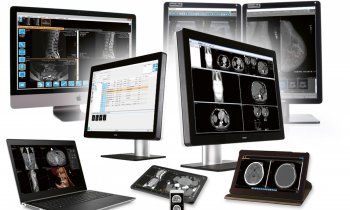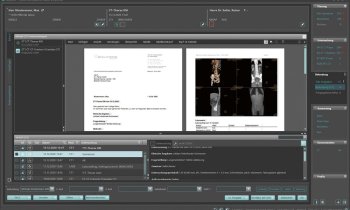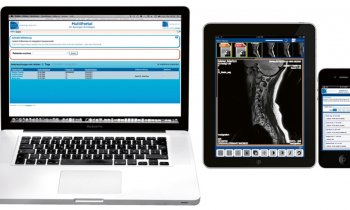Apple
New app to recruit and track patients in clinical study
By providing tools to allow users to be more productive in working with healthcare big data, several Silicon Valley giants hope to increase their presence in medical services. The latest company to enter the field is Apple Computers. In March it announced the availability of ResearchKit, an open-source software framework that turns the iPhone into a research tool.
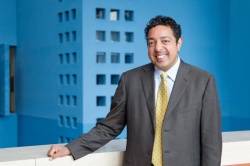
Pathologists and clinical laboratory scientists have a stake in the healthcare big data trend, since more than 70% of the typical patient’s permanent medical record consists of medical laboratory test data. Thus, the products introduced by Apple, Google, and other Silicon Valley firms that are designed to help physicians and other professionals work with healthcare big data have the potential to transform the way value is harvested from these data sets.
It was Google that took the first leap into the medical research arena. Last year, it launched Google X Life Sciences to assemble a database of the human genome.
Apple’s strategy is to support researchers. Its ResearchKit is designed to be an open-source software framework that turns the iPhone into a research tool. It enables development of apps that help medical researchers recruit study subjects and collect health information through iPhone’s sensors and surveys. Because it is an open-source platform, researchers also can create apps for Android and Windows devices.
First five ResearchKit apps already in use
Apple helped launch the first five ResearchKit apps, which offer iPhone users who suffer from specific conditions the ability to track their symptoms. Users of iPhones can also participate in research trials and surveys while allowing researchers to monitor their progress. For example:
• GlucoSuccess, was developed by the Center for Assessment Technology and Continuous Health at Massachusetts General Hospital. It uses information about diet, exercise and medicine to record how different factors influence blood sugar levels, noted a Huffington Post report.
• mPower was developed by Sage Bionetworks. This not-for-profit research organization, tracks symptoms of Parkinson’s disease by asking users to play games and complete dexterity exercises.
When researchers at New York’s University of Rochester used mPower to recruit participants for a Parkinson’s study, thousands of potential subjects responded within a few days. It was a powerful demonstration of the extensive reach of this platform, noted a Technology Review report.
Apple calling the shots in genetic studies using HealthKit apps
Apple is currently collaborating with researchers on two studies, one at the University of California San Francisco (UCSF) and another at New York’s Mount Sinai Hospital. Each study will use iPhone apps to recruit subjects and collect or test their DNA. Similar to ResearchKit apps, the research studies must be approved by both Apple and an institutional review board, which advises researchers on studies involving volunteers, noted the Technology Review story.
The UCSF study is already under way. It is researching the causes of premature birth using a combination of gene tests and other data collected on expectant mothers’ iPhones. This study is led by Atul Butte, M.D., Ph.D., a world-renown Big Data expert and new head of UCSF’s Institute for Computational Health Sciences. “The first five [ResearchKit] studies have been great and are showing how fast Apple can recruit,” he said in the Technology Review article. “I and many others are looking at types of trials that are more sophisticated,” he added, noting that the genetic causes of premature birth aren’t well understood.
Tech companies plan to free medical data from privacy constraints
An unidentified source for the Technology Review article suggested that Apple is hoping to eventually let people share their DNA data with others, including the organizers and other research projects. This would create a genome database similar to what Google is attempting to accomplish with its Baseline Study project.
ResearchKit is the brainchild of Apple’s Medical Technology Advisor Stephen Friend, M.D., Ph.D., a former pharmaceutical company executive who is now President, Co-Founder and Director of Sage Bionetworks. His vision is for a “data commons” in which study subjects are active participants in scientific research—a concept Apple has embraced since 2013.
“[W]e need more data. In a traditional clinical study, you’d be thrilled to find 500 research ‘subjects,’” stated Friend. “But imagine what is possible when you can quickly and reliably activate 20,000 research ‘partners.’ Similarly, gathering data a few times per year is the traditional gold standard, so imagine the possibilities when we are able to gather data continuously, all the time. He was quoted in a University of Rochester Medical Center article.
The Technology Review report noted that Silicon Valley companies, including Google and Apple, are determined to overrun what Friend referred to as the “medical-industrial complex” with apps and mobile devices. Because hospitals and research groups are required by state and federal privacy laws to keep patient health information private, Silicon Valley tech companies are empowering patients to collect their own data—giving them control over it—with the hope that it will be shared for use in consumer apps and technologies, as well as in science.
Source: Dark Daily
04.08.2015



